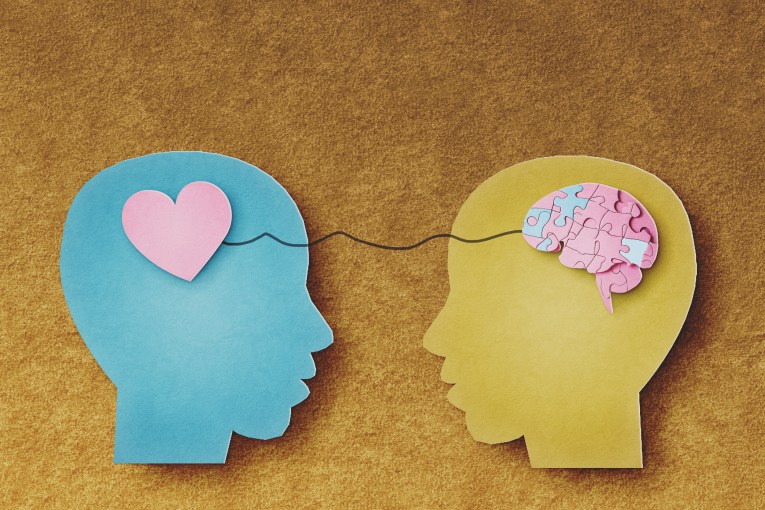‘Magnificent’ nation ends tragic year more united

AAP
An Australian bride resplendent in white – dress, veil and hijab – lays her wedding bouquet in a river of flowers.
To the sound of applause on Saturday, Manal Kassem, 23, paid this silent tribute to the victims of the Sydney siege, and with it joined thousands of others who offered heartfelt gestures of condolence to people they had never met.
Prime Minister Tony Abbott and a chorus of political leaders say lessons must be learned from the Martin Place tragedy, but the greatest lesson is already clear – our indivisible unity.
• Children and tragedy: How to help kids cope
• Tribute to ‘my closest friend’
• Why was the Sydney gunman on our streets?
The horrific killing of eight children in drought and flood-stricken Queensland has shocked us, but it also drives a local community closer.
The Malaysian airline disasters have reassured us of our bonds to the wider world, with whom we mourn.

A flag honours Tori Johnson and Katrina Dawson, who died during the Sydney siege. Photo: AAP
Raging bushfires have again claimed homes and lives, but fail to defeat our optimism, and yet again prove our charitable nature.
In all of these tragedies, the nation has shone brightly.
Monash University’s Professor Margaret Alston, a recipient of the Medal of the Order of Australia for her services to social work, tells The New Daily that the nation ought to be “very proud” of its “quite extraordinary” response to a year of many tragedies.
“We demonstrate to the world that we respond in quite magnificent ways,” Professor Alston says.
The floral tribute in Martin Place exemplifies the very best of our nature, she says, and encapsulates the nation’s desire to contribute its best wishes, sadness, sorrow and grief – a phenomenon also occurring in Cairns.
On the whole, Australia has not been tempted to blame and segregate, she says. Instead, the siege demonstrates that, despite everything, we wish to remain a community that comes together in times of significant hardship.
“The community has demonstrated incredibly effectively that negativity and division is not wanted,” says Professor Alston.
The #illridewithyou social media response to the Martin Place siege was “a global lesson”, Professor Alston says.
Hundreds of thousands shared this hashtag on social media to symbolise their support for Australian Muslims who might suffer physical or verbal violence as a result of the Sydney siege – a backlash that thankfully did not eventuate.
“Australians can be very proud that they weren’t talking of fear and retribution. They were looking to heal and to remain resilient and to bring the vulnerable along on that journey.”

A young woman about to contribute to the floral tribute at Martin Place. Photo: AAP
Disasters that dominated fewer headlines, such as the Victorian bushfires, nonetheless drew “millions and millions and millions” in cash gifts and warehouses full of donated goods for affected areas.
“The nature of Australians’ giving is magnificent and it continues to astound,” she says.
Professor Richard Bryant, a clinical psychologist, tells The New Daily that Australia – like most nations – “shines in adversity”.
The open and frank overflow of sorrow from cricket captain Michael Clarke and cricketing officials in response to the death of Phillip Hughes has struck the Professor as particularly admirable, progressive and “very, very encouraging”.
“They showed the nation that athletes, typically seen as tough, also respond to human heartache with emotional pain, and that’s something we should respect and admire,” Professor Bryant says.
Australia is also becoming less alarmist in the way it responds to tragedy, he says.
“Ten or 20 years ago, when we had a major event, alarm bells went off and everybody jumped to the conclusion that we were all vulnerable, we were all going to break down, that we as people had changed forever and would be heavily scarred. I think as a people we are growing up and the community is getting better educated that that is not the case. We do cope.”

Cricket captain Michael Clarke reacts to the death of his friend Phillip Hughes. Photo: AAP
Australia is the lucky recipient of a unique blend of difficulty and privilege, with challenges enough to grow us closer and help us greater appreciate our relative peace and good fortune.
“Australia has a long tradition of doing it tough in terms of natural disasters going back many hundreds of years, so I think the idea of helping one another goes back a long, long way,” says Professor Bryant.
Red Cross consultant for emergency services Dr Rob Gordon, a clinical psychologist, agrees.
“It certainly helps to have that history of communities working together through wars, droughts, and bushfires, and I suspect the media reflecting it back to the community at large helps everyone take a share in it,” Dr Gordon says.
To him, the most positive response to these events has been the nation’s shared sorrow, symptomatic of “a deep sense of mutual connectedness”.
“There something enormously positive in the emotion itself. The sense of collective grief is a healthy sign,” Dr Gordon says.
“There’s a sense we all have a personal stake in what happens to the members of their community. It’s what would happen in a small country town, for instance.”








